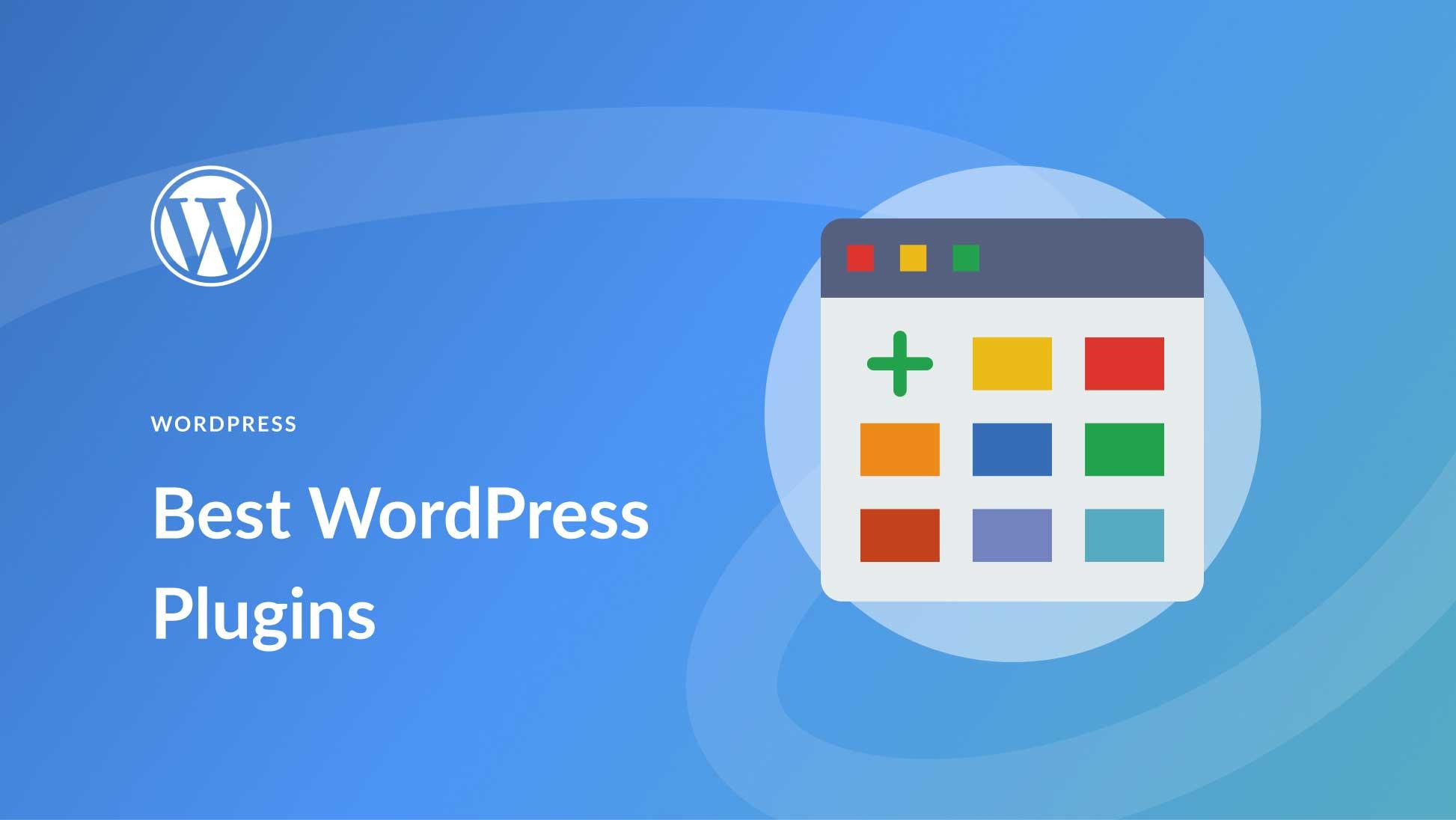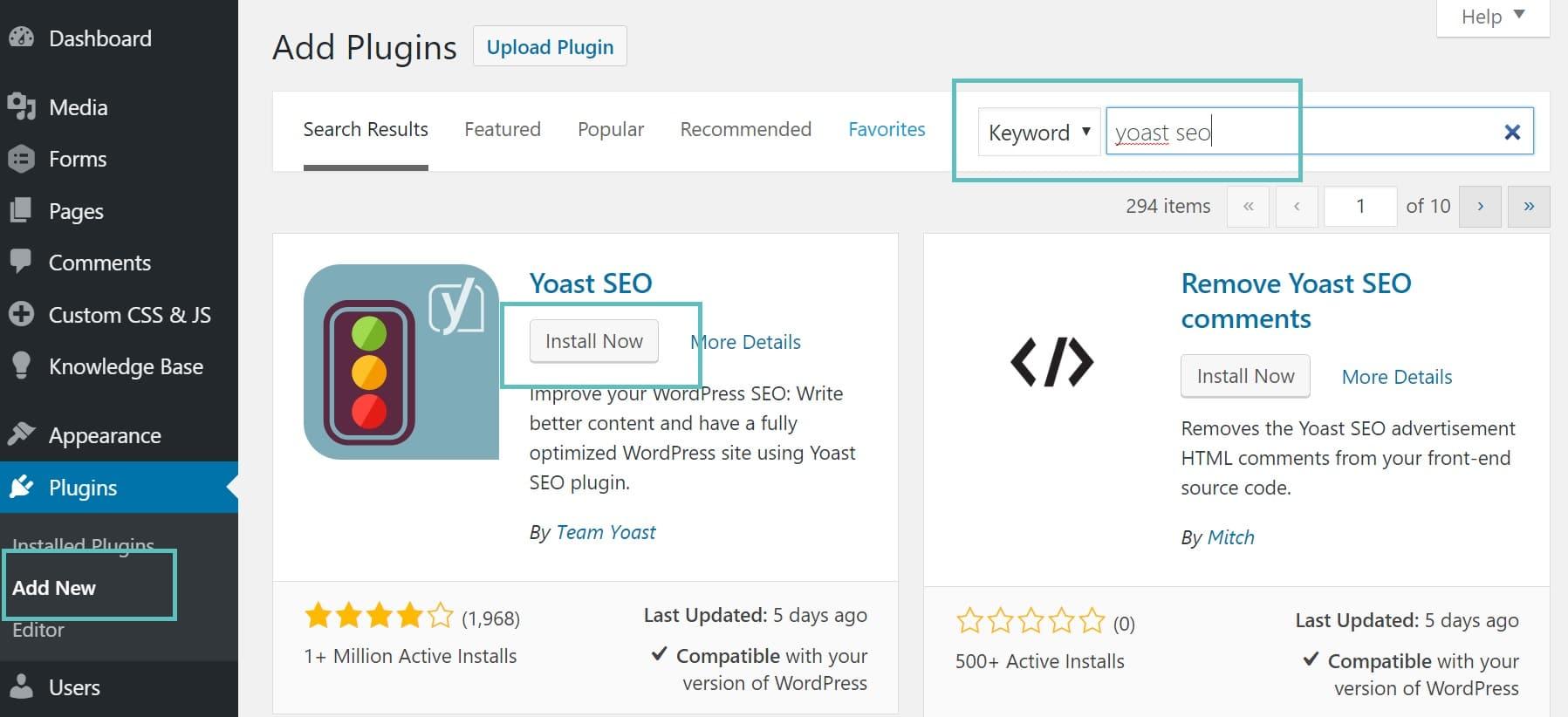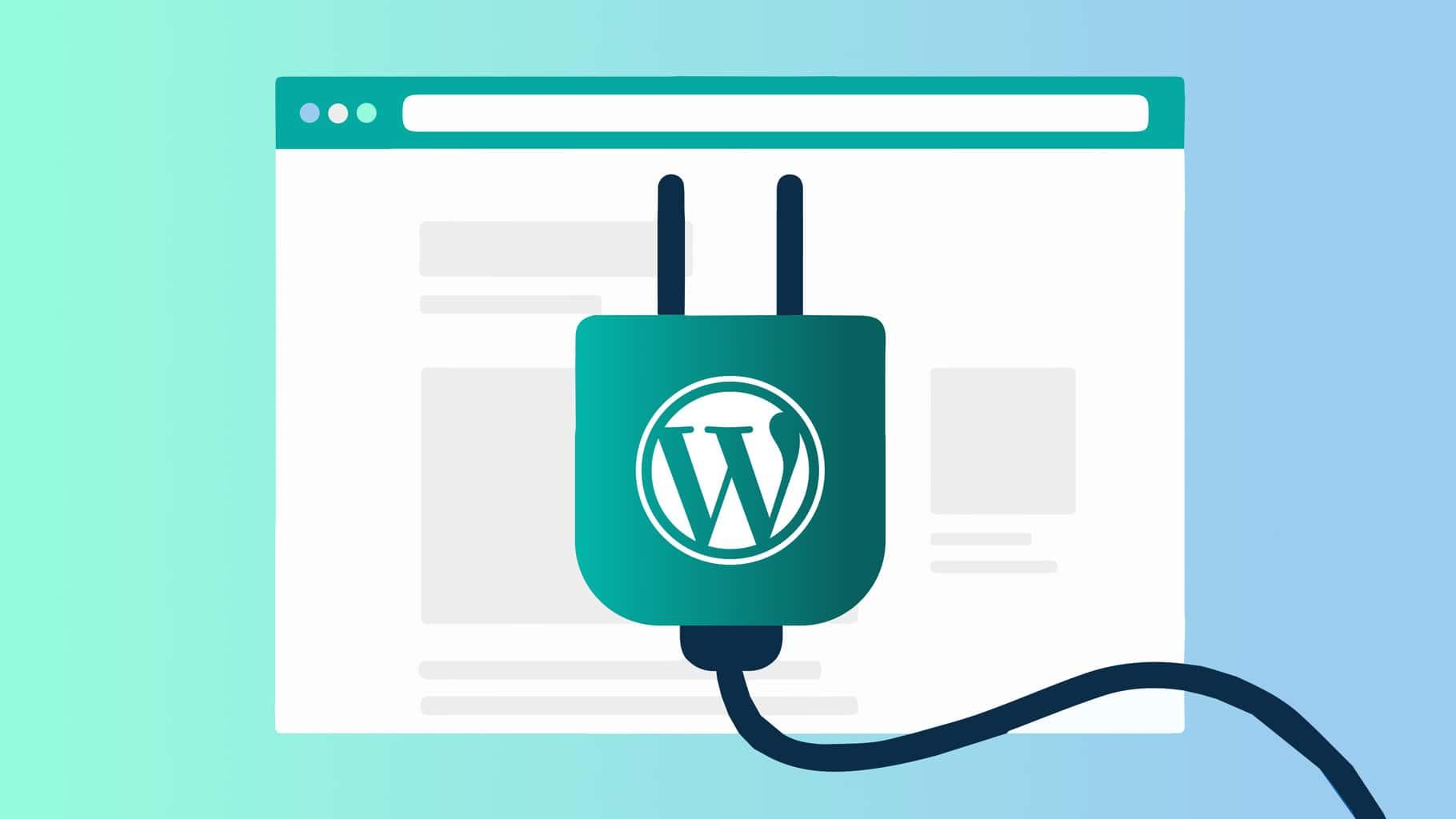Ever wondered how to supercharge your WordPress site? Enter plugins! These nifty tools add features, enhance functionality, and customize your website without needing coding skills. From SEO to security, plugins are your secret weapon for an amazing site!
What is a WordPress Plugin and What is it used for?
Are you looking to elevate your WordPress site but feeling overwhelmed by all the options? Look no further! In the vibrant world of WordPress, plugins are your secret weapon for customization and functionality. But what exactly is a WordPress plugin, and how can it transform your website into a dynamic powerhouse? In this article, we’ll dive into the essentials of plugins, uncovering what they are, how they work, and why they’re indispensable for anyone serious about their online presence. Whether you’re a seasoned web developer or just starting your blogging journey, understanding plugins is key to unlocking your site’s full potential. So, let’s roll up our sleeves and explore the exciting possibilities that await you!
Understanding WordPress Plugins and Their Importance
WordPress plugins are essential tools that enhance the functionality of your website without requiring deep coding knowledge. Think of them as the Swiss Army knives of WordPress. With thousands of options available, plugins allow you to tailor your site to meet your specific needs. Whether you’re looking to boost SEO, improve site speed, or implement complex e-commerce solutions, there’s likely a plugin designed just for that purpose.
One of the most significant advantages of using plugins is their ability to extend the core capabilities of WordPress. Here are some common uses of plugins:
- SEO Optimization: Tools like Yoast SEO help you enhance your website’s visibility on search engines.
- Security: Plugins such as Wordfence protect your site from malware and hacking attempts.
- Performance Optimization: Caching plugins like W3 Total Cache can significantly speed up your site.
- Social Sharing: Plugins like Social Warfare make it easy for visitors to share your content across social media platforms.
Managing plugins is crucial for maintaining a healthy WordPress site. Regularly updating your plugins ensures that you are taking advantage of new features and security patches. However, it’s important to be cautious when adding new plugins; too many can lead to conflicts and slow down your site performance. To help with this, consider creating a plugin management plan where you audit your installed plugins periodically.
When selecting plugins, consider their ratings, update history, and support options. This can help you identify the most reliable and effective plugins for your site. Here’s a simple comparison table of popular plugins to illustrate this:
| Plugin Name | Primary Function | User Rating |
|---|---|---|
| Yoast SEO | SEO Optimization | 4.9/5 |
| Wordfence | Security | 4.8/5 |
| W3 Total Cache | Performance | 4.7/5 |
| Social Warfare | Social Sharing | 4.6/5 |
plugins are vital for anyone looking to create a customizable and efficient WordPress site. They not only improve functionality but also enhance user experience, making your site more engaging and interactive. By choosing the right plugins and managing them effectively, you can ensure your site remains competitive and user-friendly in an ever-evolving digital landscape.

How WordPress Plugins Enhance Your Website’s Functionality
WordPress plugins are essential tools that significantly elevate the performance and capabilities of your website. They serve as add-ons that can be installed to extend the basic functionalities of WordPress. With thousands of plugins available, you can customize your website to match your specific needs, whether you’re running a blog, an e-commerce store, or a portfolio.
One of the most compelling advantages of using plugins is their ability to enhance user experience. Consider the following benefits:
- Improved SEO: Plugins like Yoast SEO help optimize your content for search engines, making it easier for potential visitors to find you.
- Enhanced Security: Plugins such as Wordfence add layers of security to protect your site from potential threats.
- Social Media Integration: Plugins can facilitate seamless sharing on social media platforms, increasing your content’s reach.
- Contact Forms: Tools like Contact Form 7 allow visitors to easily contact you, boosting engagement.
Furthermore, plugins can significantly improve your website’s performance. By optimizing images, caching pages, and minifying code, you can decrease loading times and enhance the overall user experience. A faster website not only keeps your visitors happy but can also improve your search engine rankings. Here’s a table showcasing some popular performance plugins:
| Plugin Name | Functionality |
|---|---|
| W3 Total Cache | Improves site speed through caching |
| Smush | Optimizes images for faster loading |
| Autoptimize | Minifies HTML, CSS, and JavaScript |
Customization is another area where plugins shine. Whether you want to add a custom post type, create a membership site, or set up an online store, there’s a plugin designed to help you achieve these goals. With a few clicks, you can transform your website into a versatile platform that caters to your audience’s needs.
Moreover, the ease of integration allows you to manage your website functions without needing extensive coding knowledge. Most plugins come with user-friendly interfaces, making it simple to set up and customize features to fit your brand. This accessibility empowers you to actively shape your website’s functionality without having to outsource every change to a developer.
the right combination of plugins can transform a basic WordPress site into a powerful, feature-rich platform tailored to your needs. Embracing these tools not only enhances functionality but also creates an engaging and interactive experience for your visitors. So, take advantage of the myriad of plugins available and supercharge your website today!
The Different Types of WordPress Plugins You Should Know About
WordPress plugins come in a variety of types, each serving a unique purpose to enhance your website’s functionality. Understanding these different categories can help you make informed decisions about which plugins to incorporate into your site. Let’s dive into some of the essential types you should be aware of.
1. SEO Plugins
Search Engine Optimization (SEO) plugins are crucial for improving your website’s visibility on search engines. With features like keyword optimization, XML sitemaps, and content analysis, they guide you to ensure your content reaches your target audience. Popular choices include:
- Yoast SEO
- All in One SEO Pack
- Rank Math
2. Security Plugins
In an era where cyber threats are rampant, security plugins are a must-have for safeguarding your website. They protect against malware, brute force attacks, and other vulnerabilities. Consider these top options:
- Wordfence Security
- iThemes Security
- Sucuri Security
3. E-commerce Plugins
If you’re looking to sell products or services online, e-commerce plugins are essential. They provide everything from product management to payment gateways, making the shopping experience seamless for your customers. Notable plugins in this category include:
- WooCommerce
- Easy Digital Downloads
- WP eCommerce
4. Performance Optimization Plugins
Speed is critical when it comes to user experience and SEO. Performance optimization plugins help improve load times by caching, minifying CSS/JS files, and optimizing images. Check out:
- W3 Total Cache
- WP Super Cache
- Autoptimize
5. Page Builder Plugins
For those who want to create visually stunning pages without coding, page builder plugins are your best friends. They allow you to drag and drop elements to design your layout effortlessly. Leading plugins include:
- Elementor
- Beaver Builder
- Divi Builder
6. Backup Plugins
Regular backups are vital to protect your content from data loss. Backup plugins automate the process, storing your files securely. Top choices for reliable backups include:
- UpdraftPlus
- BackupBuddy
- VaultPress
Understanding these different types of plugins can empower you to enhance your WordPress site effectively. Choose wisely based on your specific needs, and elevate your website’s performance and user experience.

Choosing the Right Plugins for Your Unique Needs
When it comes to enhancing your WordPress site, the plethora of available plugins can be overwhelming. Choosing the right ones tailored to your specific needs is essential for optimizing your site’s performance. Begin by identifying the core functionalities you require. Are you looking to boost SEO, enhance security, or perhaps improve user experience? Knowing your priorities is the first step in narrowing down your choices.
Next, consider the quality of the plugins. Look for options that are:
- Well-rated: Check user reviews and ratings to gauge reliability.
- Regularly updated: Frequent updates indicate active development and support.
- Compatible: Ensure the plugin works seamlessly with your WordPress version and theme.
Another critical aspect is to think about plugin performance. Some plugins can slow down your website, which ultimately affects user experience and SEO rankings. Use tools like GTmetrix or Google PageSpeed Insights to test your website’s speed before and after installing a plugin. This will help you identify any performance impacts.
| Plugin Type | Recommended Plugins | Use Case |
|---|---|---|
| SEO | Yoast SEO, All in One SEO | Optimize your site for search engines |
| Security | Wordfence, Sucuri Security | Protect your site from threats |
| Performance | WP Rocket, W3 Total Cache | Enhance site speed and performance |
Don’t forget to look for support and documentation. A good plugin should come with comprehensive documentation that helps you navigate its features effortlessly. Additionally, check if there’s a support forum or community where you can seek help if you encounter any issues. This can save you a lot of time and headaches down the road.
Lastly, always remember to test plugins before fully integrating them into your site. Consider using a staging environment where you can experiment without affecting your live site. This approach allows you to evaluate plugin functionality and compatibility while ensuring your site remains professional and user-friendly.
Exploring Popular WordPress Plugins That Can Transform Your Site
WordPress plugins are magical tools that elevate your website from basic to extraordinary. These little packages of code extend the functionality of your site, allowing you to customize it to suit your specific needs. Whether you’re looking to enhance performance, boost SEO, or improve user experience, there’s a plugin out there for you. Let’s dive into some popular options that can truly transform your site.
SEO Plugins are essential for any website looking to improve its visibility on search engines. A plugin like Yoast SEO not only helps optimize your content but also provides valuable insights into how well your posts adhere to SEO best practices. With features like readability checks and keyword optimization, it empowers you to make informed decisions that boost your search rankings.
Security Plugins are a must-have for protecting your site from malicious attacks. Wordfence Security is one of the top choices among website owners. It offers robust firewall protection, malware scanning, and real-time traffic monitoring. Ensuring your site’s safety gives you peace of mind, allowing you to focus on creating great content.
Performance Optimization Plugins, such as WP Rocket, are powerful allies in speeding up your website. They help improve loading times through caching, which enhances user experience and positively impacts SEO. A faster site keeps visitors engaged, reducing bounce rates and increasing the likelihood of conversions.
Another category to consider is eCommerce Plugins. If you’re planning to sell online, WooCommerce is the go-to solution. This plugin transforms your WordPress site into a fully functional eCommerce store, complete with payment gateways, inventory management, and shipping options. With WooCommerce, you can easily create a beautiful online shop that caters to your customers’ needs.
Lastly, don’t underestimate the power of Social Media Plugins. Tools like Social Snap can help you integrate social sharing options seamlessly into your posts, making it easy for your audience to share your content. This not only increases your reach but also drives traffic back to your site, creating a win-win situation for your online presence.
| Plugin Type | Popular Plugins | Main Features |
|---|---|---|
| SEO | Yoast SEO | Keyword optimization, readability checks |
| Security | Wordfence Security | Firewall protection, malware scanning |
| Performance | WP Rocket | Page caching, speed optimization |
| eCommerce | WooCommerce | Online store setup, payment processing |
| Social Media | Social Snap | Social sharing integration, analytics |
Choosing the right plugins can significantly enhance your WordPress experience, making it more efficient and user-friendly. Take the time to explore these options and find the ones that align with your goals. With the right tools in your arsenal, you can create a site that stands out in the crowded online landscape.

Best Practices for Installing and Managing WordPress Plugins
When it comes to enhancing the functionality of your WordPress site, plugins are your best friends. However, selecting and managing them wisely is crucial to maintaining your site’s performance and security. Here are some essential tips to help you navigate the world of WordPress plugins.
Choose Wisely: Before installing any plugin, consider its necessity. Ask yourself the following:
- Does it provide a solution to a specific problem?
- Is it from a reputable source with good reviews?
- How often is it updated to stay compatible with the latest WordPress version?
Limit Your Plugin Count: While it might be tempting to install numerous plugins, less is often more. Each plugin can add load time and potential security vulnerabilities. Aim to:
- Use only essential plugins.
- Regularly review and deactivate or delete those that aren’t used.
Regular Updates: Keeping your plugins updated is critical for performance and security. Set a schedule to:
- Check for plugin updates once a week.
- Read update notes to understand changes and enhancements.
Backup Before Changes: Always create a backup of your site before installing new plugins or updating existing ones. This ensures that you can restore your site to its previous state in case something goes wrong. Consider using:
- Plugins like UpdraftPlus or BackupBuddy for easy backups.
Testing Environments: If you’re experimenting with new plugins or updates, it’s wise to use a staging site. This allows you to:
- Test the plugins without affecting your live site.
- Identify any conflicts or issues before going live.
Performance Monitoring: Keep an eye on your site’s performance after installing plugins. Tools like Google PageSpeed Insights can help you:
- Identify any slow-loading plugins.
- Optimize your site’s speed for better user experience.
| Plugin Feature | Benefits |
|---|---|
| SEO Optimization | Improves search engine visibility and traffic. |
| Security Enhancements | Protects your site from vulnerabilities and attacks. |
| Performance Boosters | Speeds up loading times for a better user experience. |
| Backup Solutions | Ensures data safety and easy recovery options. |
By following these best practices, you’ll not only enhance the functionality of your WordPress site but also ensure that it runs smoothly and securely. Remember, a well-managed plugin ecosystem contributes to a better overall experience for you and your visitors.

Avoiding Common Pitfalls: What to Watch Out for When Using Plugins
When diving into the world of WordPress plugins, it’s easy to get swept away by the sheer number of options available. However, navigating this landscape requires caution. Here are some common pitfalls that can lead to headaches down the road.
- Ignoring Compatibility: Always check if the plugin is compatible with your current version of WordPress. Incompatible plugins can cause site malfunctions or, worse, crashes.
- Overloading Your Site: It’s tempting to install multiple plugins to enhance functionality, but too many can slow your site down. Aim for quality over quantity.
- Neglecting Updates: Outdated plugins can be security risks. Regularly updating your plugins ensures you have the latest features and security patches.
- Relying on Free Versions: While free plugins can be fantastic, they often lack support and updates. Evaluate whether a premium version is worth the investment for the functionality you need.
Another area to watch out for is plugin support and reviews. Not all plugins are created equal, and the best way to gauge their reliability is by looking at user feedback. A plugin with numerous 5-star reviews and active support will likely serve you better than one that’s poorly rated or outdated.
| Plugin Feature | Importance |
|---|---|
| Security | High |
| Performance | High |
| User Support | Medium |
| Regular Updates | Critical |
Lastly, always test plugins on a staging site before implementing them on your live website. This practice helps you identify potential conflicts without risking your site’s integrity. A little precaution can save you from a lot of trouble later!

The Future of WordPress Plugins: Trends to Keep an Eye On
The landscape of WordPress plugins is evolving rapidly, shaped by technological advancements and user demands. As we look ahead, several key trends are emerging that will significantly influence how plugins are developed and utilized. Understanding these trends can help developers and users alike stay ahead of the curve.
AI Integration is one of the most exciting trends. As artificial intelligence continues to grow, we can expect plugins that leverage AI to enhance user experience. From automated content generation to personalized recommendations, AI-driven plugins will transform how we interact with our WordPress sites. Imagine a plugin that analyzes user behavior and automatically optimizes your content strategy for maximum engagement!
Another trend to watch is the rise of block-based plugins. With the introduction of the Gutenberg editor, the WordPress community is shifting towards a more modular approach to content creation. This means plugins will increasingly need to adopt block formats, allowing users to drag and drop functionalities directly into their pages. This not only enhances usability but also empowers users to customize their sites without requiring extensive technical knowledge.
Performance optimization will continue to be at the forefront of plugin development. Users demand faster loading times and smoother experiences. As a result, plugin developers will focus on writing cleaner code, reducing bloat, and employing techniques like lazy loading. This trend is essential for maintaining site speed and improving SEO rankings.
| Trend | Impact |
|---|---|
| AI Integration | Enhanced user experiences with personalized features |
| Block-based Plugins | Increased usability and customization options |
| Performance Optimization | Faster sites and improved SEO |
Security enhancements are also essential as cyber threats become more sophisticated. Future plugins will likely include advanced security features, such as automated backups, real-time threat detection, and stronger user authentication methods. By prioritizing security, developers can help users feel more confident in the safety of their WordPress sites.
Lastly, we can’t overlook the importance of user-centric design. As the WordPress ecosystem matures, developers will need to focus on creating plugins that are not only functional but also intuitive and user-friendly. This means investing in user interface (UI) and user experience (UX) design to ensure that plugins can be easily navigated by individuals of all skill levels.
Maximizing Performance: Tips for Optimizing Your WordPress Plugins
When it comes to enhancing your WordPress site’s performance, optimizing your plugins is crucial. Plugins are powerful tools that extend the functionality of your website, but having too many or poorly optimized plugins can slow down your site significantly. Here are some actionable tips to help you maximize performance:
- Choose Quality Over Quantity: Instead of piling on plugins, focus on installing high-quality options that serve multiple purposes. A good all-in-one plugin can eliminate the need for several smaller ones.
- Regularly Update Plugins: Ensure all your plugins are up to date. Developers frequently release updates to not only add new features but also fix bugs and improve performance.
- Evaluate Plugin Necessity: Periodically review your current plugins. Ask yourself if each one is essential to your site’s function. If it’s not, consider deactivating or deleting it.
- Use Caching Plugins: Implement caching solutions that help store copies of your pages and posts, significantly decreasing load times and server requests.
- Minimize HTTP Requests: Each plugin can add additional HTTP requests, which can slow down your site. Aim to reduce these by combining functionalities or using plugins that streamline processes.
Additionally, monitoring your site’s performance regularly can reveal the impact of your plugins on load times. Utilize tools like Google PageSpeed Insights or GTmetrix to identify which plugins might be draining your resources. When you discover performance bottlenecks, don’t hesitate to seek alternatives.
| Plugin Type | Performance Impact |
|---|---|
| SEO Plugins | Moderate (if well-optimized) |
| Caching Plugins | High (improves speed) |
| Social Media Plugins | Low to Moderate |
| Form Builders | Moderate (depends on usage) |
| Security Plugins | Moderate to High |
while plugins are vital for enhancing the functionality of your WordPress site, their performance optimization is equally important. By following these tips, you can ensure that your website remains fast, responsive, and user-friendly. Remember, a well-optimized site not only improves user experience but also contributes positively to your SEO efforts.
Why Every WordPress User Should Embrace the Power of Plugins
Plugins are the unsung heroes of the WordPress ecosystem, transforming a basic website into a fully functional powerhouse. They offer an incredible range of features that can cater to every type of user—from bloggers to e-commerce entrepreneurs. By embracing the power of plugins, you unlock a world of possibilities for customizing your site without needing to write a single line of code.
Here’s why you should dive into the vast ocean of WordPress plugins:
- Enhanced Functionality: Plugins allow you to add features that are essential for your website’s purpose. Whether you need SEO tools, social media integration, or contact forms, there’s a plugin for that!
- Time-Saving: Many plugins automate processes that would otherwise take hours or days to accomplish manually. From backups to security checks, automation lets you focus on what truly matters—creating great content.
- Customization: With thousands of plugins available, you can tailor your website’s appearance and functionality to fit your brand and audience perfectly. Want to add a gallery, improve your site’s speed, or implement a membership system? Plugins can handle it!
- Community Support: Most popular plugins have vibrant communities and extensive documentation. This means that if you run into any issues, you can find solutions quickly—often without any cost.
However, it’s essential to choose your plugins wisely. Not all plugins are created equal, and some can negatively impact your site’s performance. Here’s a quick table comparing different types of plugins you might consider:
| Type of Plugin | Purpose | Popular Options |
|---|---|---|
| SEO Plugins | Optimize site for search engines | Yoast SEO, All in One SEO Pack |
| Security Plugins | Protect against threats | Wordfence, Sucuri Security |
| Performance Plugins | Speed up website loading times | W3 Total Cache, WP Super Cache |
| Backup Plugins | Ensure data safety | UpdraftPlus, BackupBuddy |
Choosing the right plugins can significantly enhance your website’s performance and user experience. But remember, finding a balance is key. Too many plugins can slow down your site, so focus on those that provide the most value. As you explore, you’ll find that embracing the power of plugins not only enhances your site but also simplifies your workflow, making it an indispensable aspect of your WordPress journey.
Frequently Asked Questions (FAQ)
Q&A: What is a WordPress Plugin and What is it Used For?
Q1: What exactly is a WordPress plugin?
A1: Great question! A WordPress plugin is like an app for your WordPress site. It’s a piece of software that you can install to add new features or functionalities to your website. Whether you want to enhance your site’s performance, improve SEO, add social media sharing options, or even manage e-commerce, there’s likely a plugin that can help you achieve your goals.
Q2: Why would I need a plugin for my WordPress site?
A2: Think of plugins as tools in your website toolkit. They allow you to customize and extend the capabilities of your site without needing to write a single line of code. Want to create a contact form? There’s a plugin for that! Looking to optimize your site for search engines? Yup, you guessed it—there’s a plugin for that too! The beauty of plugins is that they make advanced functionalities accessible to everyone, regardless of technical skill.
Q3: Are all plugins free?
A3: Not all, but many plugins are available for free in the WordPress Plugin Directory. These free plugins can do a fantastic job for basic functions. However, some premium plugins come with advanced features, dedicated support, and more robust capabilities—often worth the investment if you’re serious about your website.
Q4: How do I install a plugin? Is it complicated?
A4: Installing a plugin is super simple! Just head to your WordPress dashboard, click on “Plugins,” then “Add New.” You can search for the plugin you want and hit “Install.” Once it’s installed, click “Activate,” and voilà! It’s like flipping a switch. Plus, there are countless tutorials available if you ever feel stuck.
Q5: Can plugins slow down my website?
A5: It’s possible! While plugins add great features, having too many can lead to slower load times. It’s essential to choose high-quality plugins from reputable developers and periodically review your list to remove any that you no longer use. A well-optimized site is not just more enjoyable for your visitors, but it also helps with SEO!
Q6: Are there any risks involved with using plugins?
A6: Like anything in the digital world, there are some risks. Poorly coded plugins can cause security vulnerabilities or compatibility issues with your theme or other plugins. That’s why it’s crucial to stick with well-reviewed, regularly updated plugins from trusted sources. Always keep your plugins up-to-date to minimize security risks.
Q7: What are some must-have plugins for a WordPress site?
A7: There are a few that really stand out! For SEO, consider Yoast SEO. For security, Wordfence is a popular choice. If you’re looking to speed things up, WP Super Cache is excellent. And for managing backups, UpdraftPlus does a fantastic job. These plugins can significantly improve your site’s performance and security!
Q8: why should I start using plugins on my WordPress site?
A8: Simply put, plugins are your best friends when it comes to building a successful WordPress site. They empower you to create a tailored experience for your visitors, enhance your site’s functionality, and give you the tools you need to achieve your goals—all without needing to be a coding whiz. So why not dive in and start exploring the world of WordPress plugins? Your website will thank you!
Concluding Remarks
WordPress plugins are the magic wands of the digital world, transforming your website from basic to extraordinary with just a few clicks. Whether you’re looking to enhance your site’s functionality, improve SEO, or add eye-catching designs, there’s a plugin out there that can help you achieve your goals.
So why not take advantage of this incredible resource? With thousands of plugins available, you can tailor your website to meet your specific needs without needing to write a single line of code. The possibilities are truly endless!
If you’re ready to elevate your WordPress experience, start exploring the plugin directory today. Who knows? The perfect solution for your website’s challenges might be just a download away. Happy plugin hunting!




